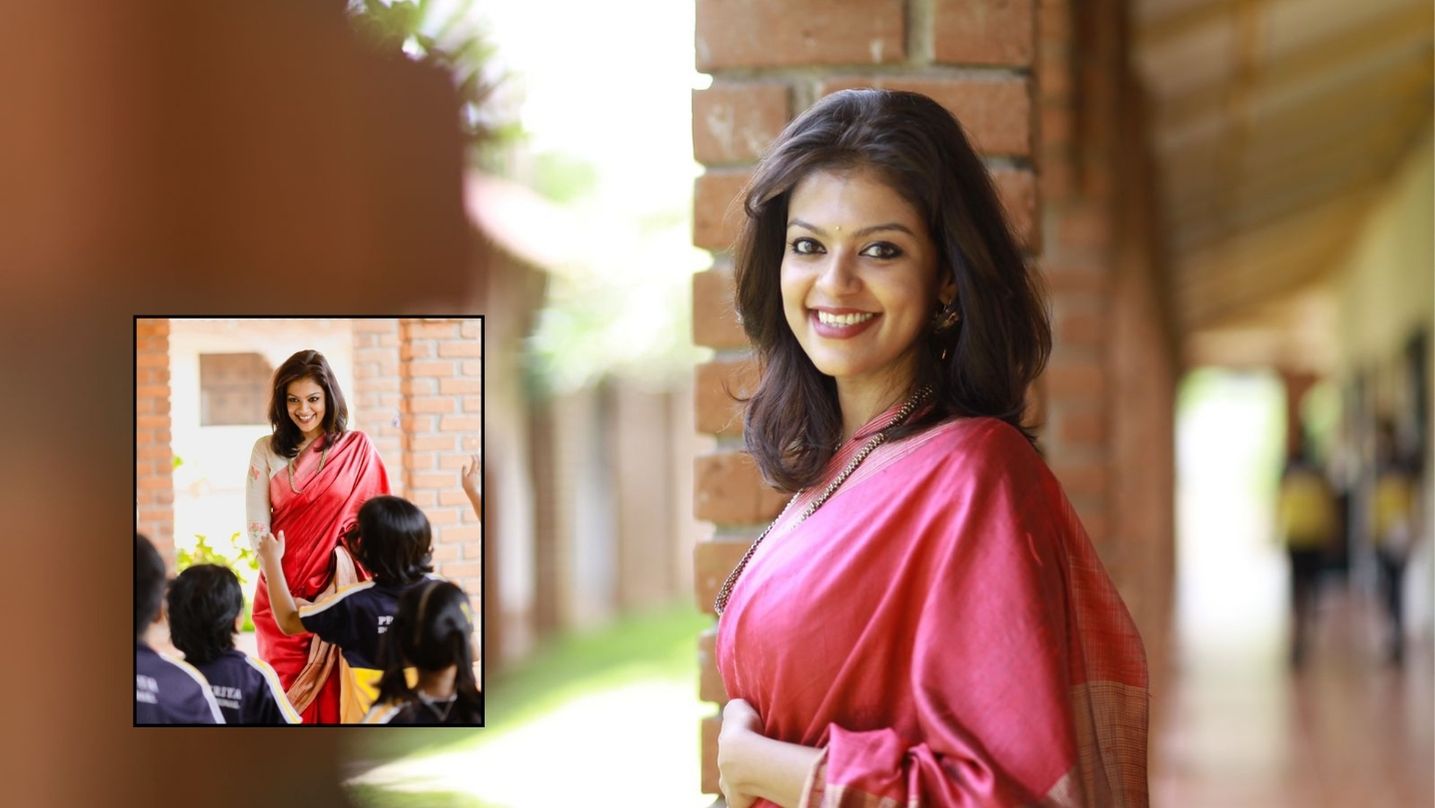
In the heart of the Vivekalaya Group of Institutions, within the venerable walls of the art-deco building, we, eagerly sought to discover the layers of knowledge and experiences held by Ms. Aishwarya Rao- granddaughter of Late Shri RK Kandaswamy Chettiar. As the Director Academics and Administration of The Vivekalaya group of Institutions and the Managing Trustee of the PremAnand Foundation, we learned that Ms. Rao is not just a seasoned educational expert but also an ardent animal lover and a staunch advocate for women's welfare. Notably, she is also the grandniece of the first finance minister of Independent India, Diwan of Kochi Shri RK Shanmugham Chetty. Our mission was to delve into the depths of her service, gain insights into the cultural nuances of education in our country, and glean wisdom from her decade-long journey in academics.
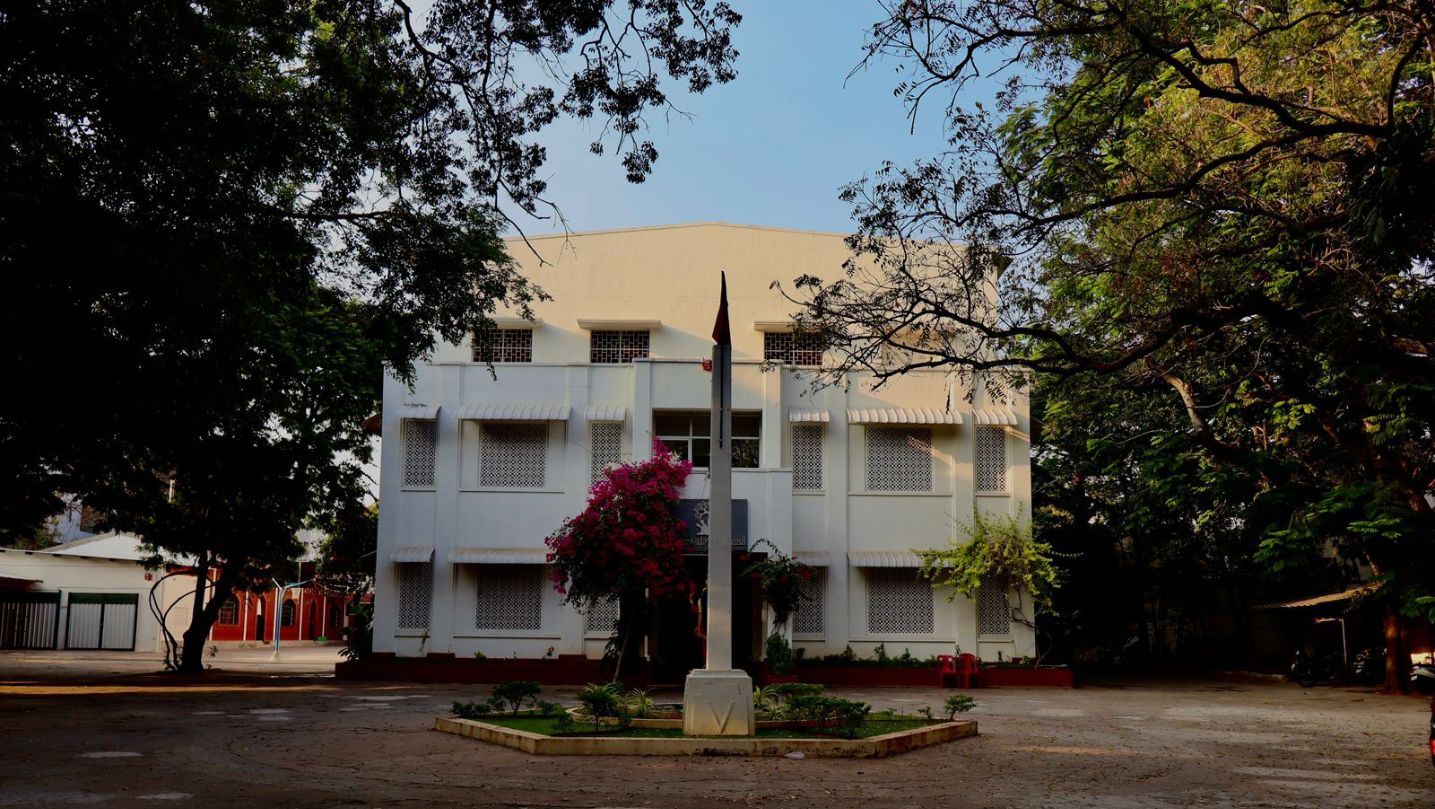
A panoramic view of Vivekalaya Campus
Throughout the interview, Ms. Rao generously shared her perspectives on various facets of education. We explored the intricacies of how education is approached, the formidable challenges it encounters, and the evolving landscape that defines the educational sphere in India. From the progressive strides in Indian education poised for a brighter future to National Education Policy (NEP), western wokeism, and the hurdles faced by the GenZ and subsequent generations, our conversation spanned the gamut of educational intricacies.
We initiated our conversation with a lighter inquiry into Ms. Rao's journey in the realm of education and its interesting origins. Responding with warmth she said that she was entering her 13th year in the field as we were taking the interview. Her foray into education was quite unexpected. Although her career trajectory was rooted in textiles, following in her father's footsteps at a tender age – around 20, she realized sooner that she belonged somewhere else. Her mother Mrs. Prema Rao suggested she explore the world of education and she spent about 6 months in school, and during that time, she fell in love with it. Realizing that this was her calling, she pursued her master's degree, solidifying her commitment to the field. She often reflects on the notion that a hero does not choose his destiny; destiny chooses him.
Being grateful for the destiny to have guided her to the field of education, we further delved into the conversation, posing a question about her views on the trajectory of post-independence Indian education being the director of a 34-year-old educational Institution. She responded that the institution has seen significant changes in education over the past three decades. Initially, education was rigid and ritualistic, solely focused on academic fulfillment without considering individual needs, she said and added that now a paradigm shift with a more holistic approach becoming the norm and mental health taking precedence—a stark contrast to a time when mental health was not a priority for children or even adults.
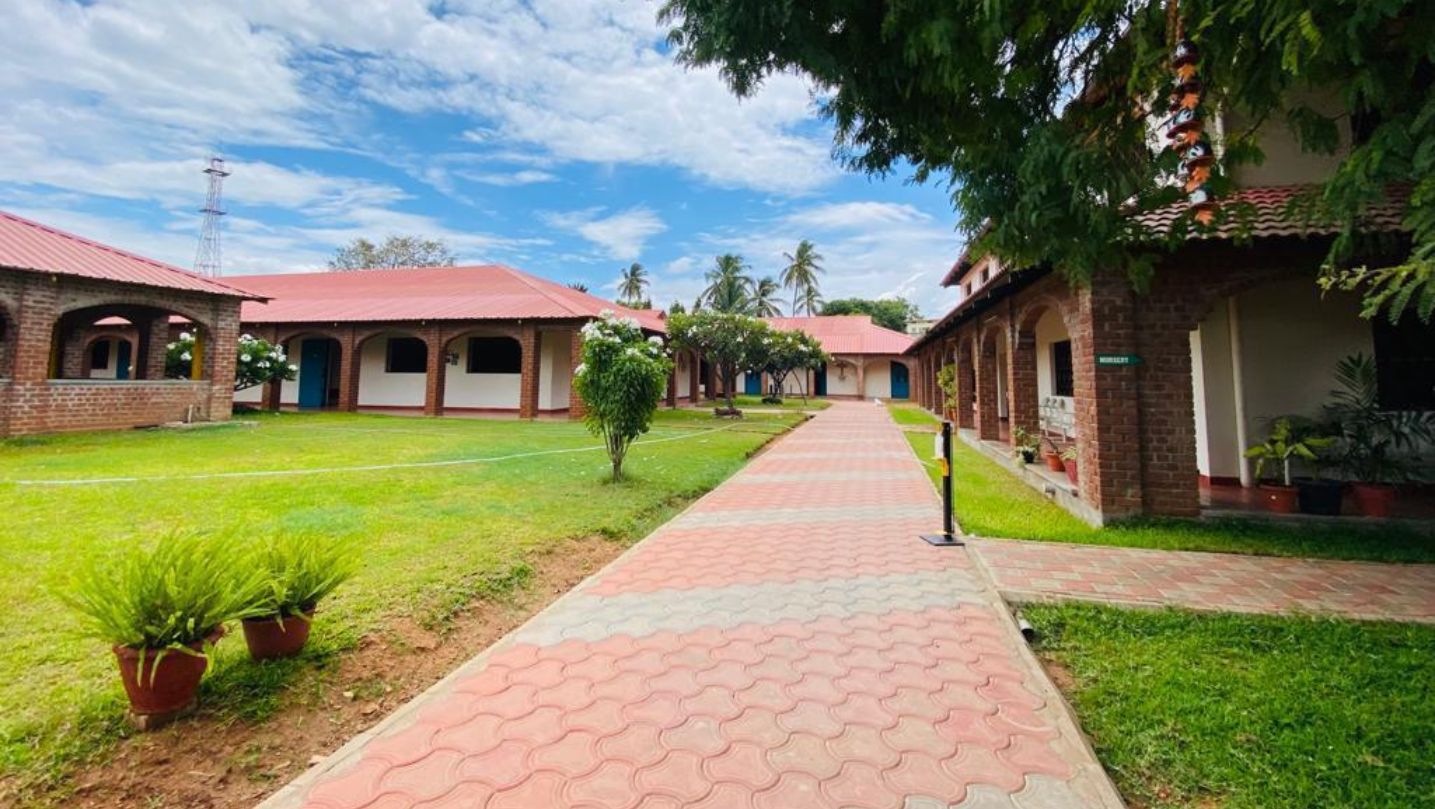
The Picturesque Prakriya Campus
Ms. Rao added that it is no longer solely about academic fulfillment but aims to be emotionally enriching, mentally stimulating, and spiritually orienting. The goal is to ensure that childhood spent in educational institutions contributes to the development of functioning and independent individuals. While the shift may not be entirely seamless, it is in progress. Recognition of the importance of mental health is growing, and steps are being taken, albeit gradually, to incorporate spiritual elements into the education system. The adoption of practices such as yoga and mindfulness meditation signify a positive transformation, indicating an upward trajectory despite inevitable challenges.
Vivekalaya's contribution to this holistic approach is truly commendable in this regard. She expressed, "Nobody is willing to break as many boundaries as a mother who wants a change for their child. With a motherly approach, we are taking this institution forward." The emphasis on a nurturing, motherly approach reflects the institution's commitment to fostering positive change in students.
Ms. Rao also underscored the significance of avoiding violence as a means of disciplining children, a departure from the common practices of the past. Vivekalaya prioritizes a non-punitive approach, recognizing the need for a nurturing and supportive environment. An interesting facet of their methodology is the absence of exams until grade 4, allowing children to discover their own learning styles from a young age. This approach aligns with the philosophy that education is not just about assessment but a journey of self-discovery.
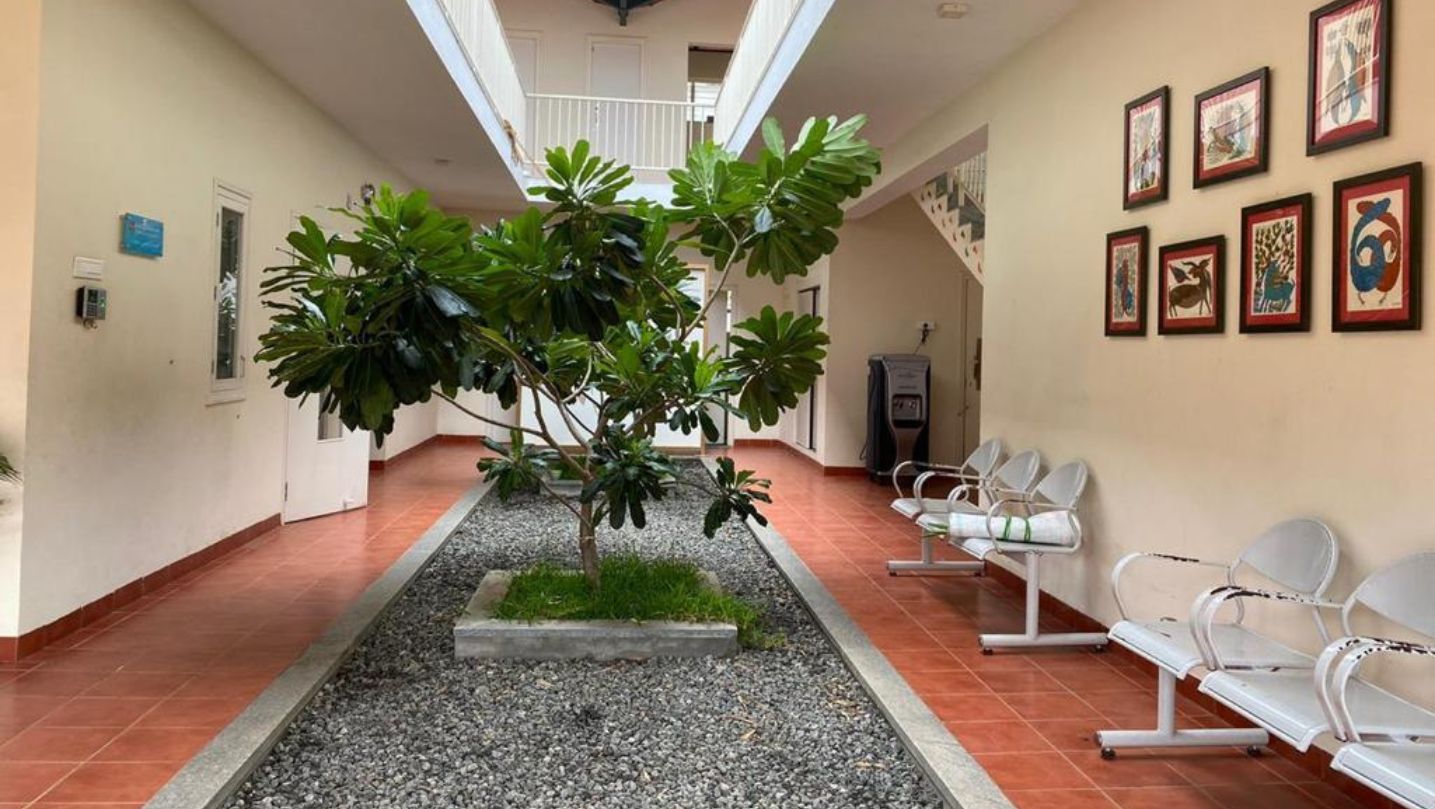
Prakriya Campus: Where nature meets education
Ms. Rao expressed the necessity of equipping individuals not only with academic knowledge but also with practical skills, emphasizing that academic brilliance alone does not suffice. She pointed out the prevalent situation in the country where individuals may excel in academic subjects but struggle with basic tasks such as fixing a light bulb. Ms. Rao contended that vocational subjects play a pivotal role in addressing this gap, ensuring that individuals remain not only academically proficient but also capable of practical, everyday tasks. She emphasized the significance of self-sufficiency, especially in situations where academic intelligence alone may not guarantee employment.
The conversation on the skill-based approach to learning led us to something most prevalent in the education world, the National Educational Policy (NEP). On the account of NEP, Rao noted that it is too early to review, as it has not yet come into effect. However, she firmly emphasized the importance of having a holistic national policy for education in any nation. Acknowledging the brilliance of the system, she highlighted the incorporation of vocational subjects as a crucial element. She commended the inclusivity of NEP 2020, particularly its provision allowing the teaching of the curriculum in local regional languages. She sees this as a positive step, expanding access to education in rural areas and instilling confidence in learners that their education is on par with any other. She views education as a unifying force, emphasizing that differences should not define us, and the policy plays a crucial role in fostering a sense of unity through the unification process of "One nation, one education."
It is crucial to recognize that Vivekalaya Institutions not only supports the inclusion of vocational subjects but actively embodies and promotes it. The institution has taken a noteworthy step by introducing a new initiative that goes beyond the conventional boundaries of education. In this initiative, school maids, or Ayammas, are being provided with the opportunity to learn vocational skills such as stitching and cooking. This initiative is not merely an educational endeavor but a compassionate effort aimed at uplifting the livelihoods of those contributing to the daily functioning of the school.
By extending the scope of education to include practical skills for the Ayammas, Vivekalaya demonstrates a commitment to holistic development that goes beyond traditional classroom settings. This initiative not only empowers individuals with valuable vocational skills but also reflects a broader ethos of social responsibility and inclusivity. It serves as a testament to the institution's dedication to fostering not only academic excellence but also contributing to the overall well-being and empowerment of the entire school community, thanks to luminaries like Ms. Aishwarya Rao.
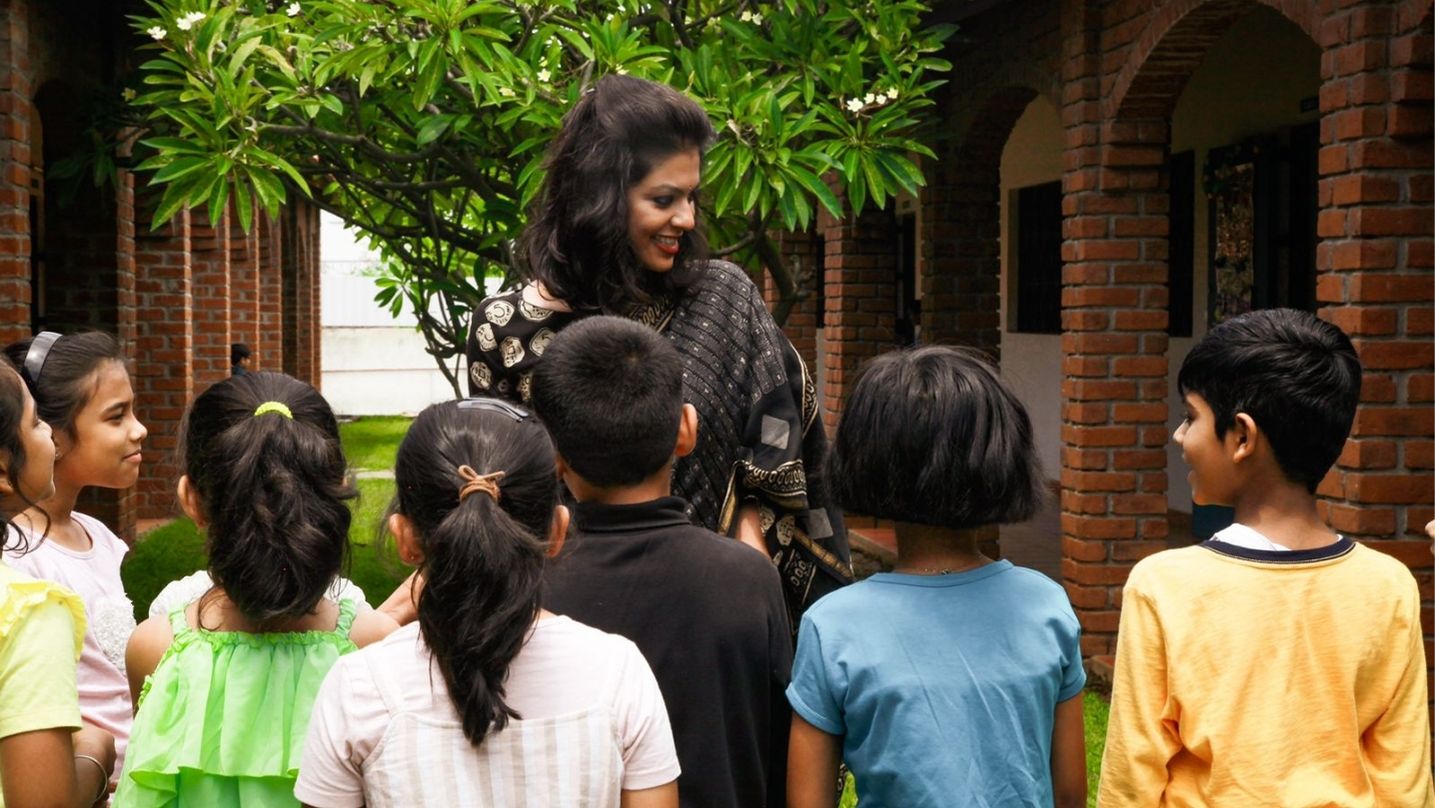
Ms. Aishwarya Rao interacting with Children
The evolving need for awareness on mental health made us probe into the challenges of handling Generation Z and later generations in education, Ms. Rao candidly identified confusion and distraction as prominent issues. Ms. Rao expressed understanding, stating that blaming children for distractions is unfair, noting that the generation encounters issues not prevalent in previous generations but benefits from opportunities that others did not have. Ms. Rao addressed the rise in mental health difficulties among children, drawing attention to issues like anxiety and depression that seem more prevalent today. One significant difference she highlighted is the impact of the online world on perception, communication, and the need to associate with cultures or systems beyond their own.
She traced the shift, expressing concern about the sustained growth of these issues and attributing them to our collective inability to support children effectively. Ms. Rao proposed a solution rooted in acknowledging and normalizing emotions. She advocated for teaching children to deal with failure, sadness, and other emotions in a healthy manner, asserting that defining and addressing these feelings at a basic level can prevent them from escalating into more complex mental health issues.
Continuing our discussion, we inquired if there are potential effects western wokeism has on children's behavior. Ms. Rao responded with a thoughtful perspective, expressing concerns about the substantial impact wokeism can have on children. She acknowledged that the effects might take a little longer to manifest but are undoubtedly prevalent and of growing concern.
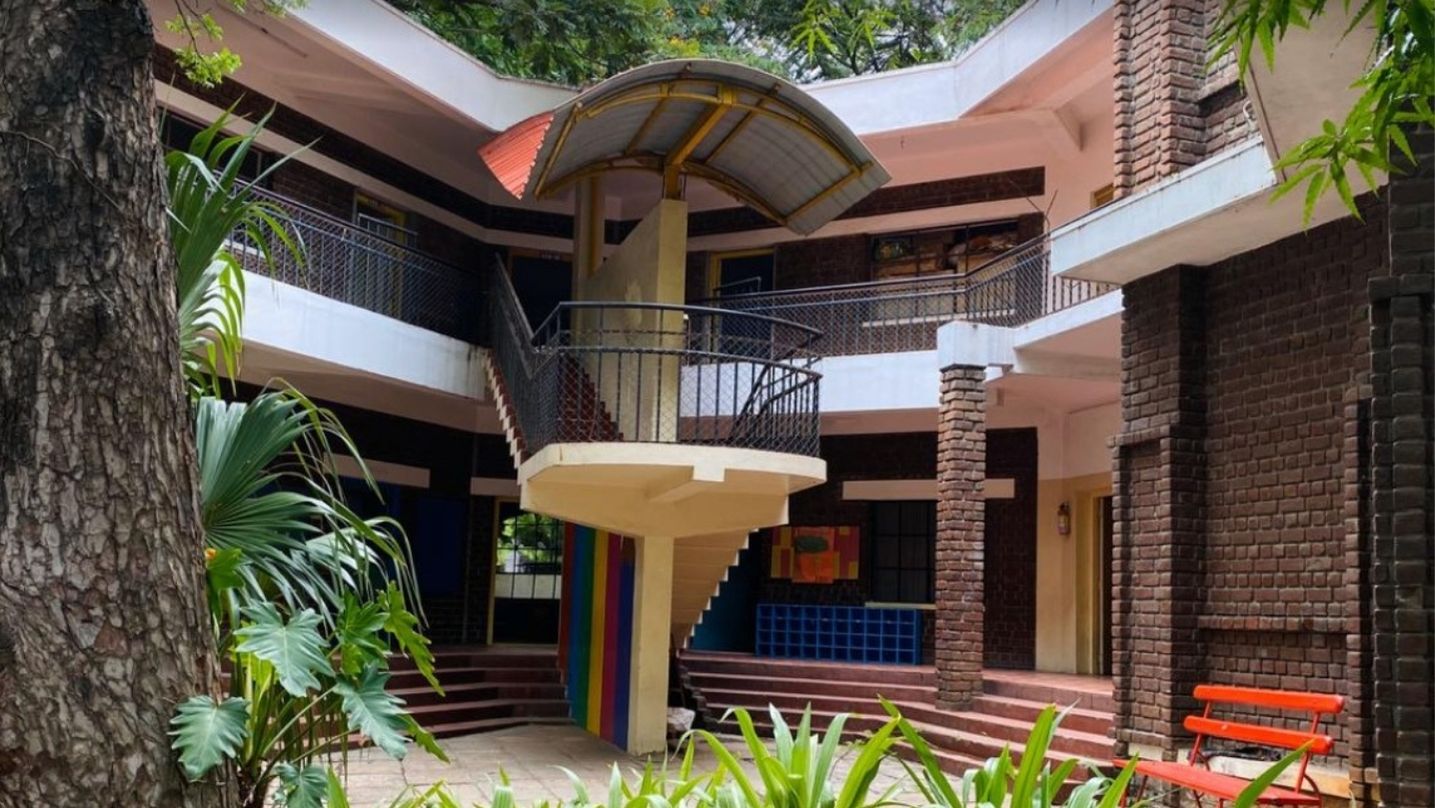
Charming Vivekalaya Campus
Ms. Rao articulated the wokeism issue as "permission without protection" in psychology, emphasizing that one should never grant permission without simultaneously providing protection to a child. Telling children that they can be anything without addressing the potential difficulties that may arise is, according to Ms. Rao, a problematic approach.
Ms. Rao emphasized the importance of presenting facts and logic to children, as logic is irrefutable. She encouraged challenging opinions and beliefs, urging the need for actions aligned with one's beliefs rather than merely expressing opinions. Ms. Rao concluded by emphasizing that children should be taught to act rather than simply sharing opinions. Opinion costs nothing but action costs you everything.
In response to inquiries regarding the role of parents in a child's education and upbringing, Ms. Rao emphasized the pivotal and equal role parents play alongside schools. She highlighted the significance of parental influence from the very beginning, starting with the choices parents make for their children, including the selection of the learning environment. Ms. Rao emphasized the importance of parental involvement, motivation, and, most crucially, the role parents play in defining the kind of learner a child becomes.
According to Ms. Rao, the home environment significantly shapes a child's approach to learning and exploration. While the school provides the environment for learning, it is the household that sets the tone for a child's inquisitiveness and willingness to explore. A home that encourages questioning and exploration will naturally foster these qualities in a child's educational journey. Conversely, a restrictive household might limit a child's ability to express opinions and stifle their potential for growth within the school environment - a true statement.
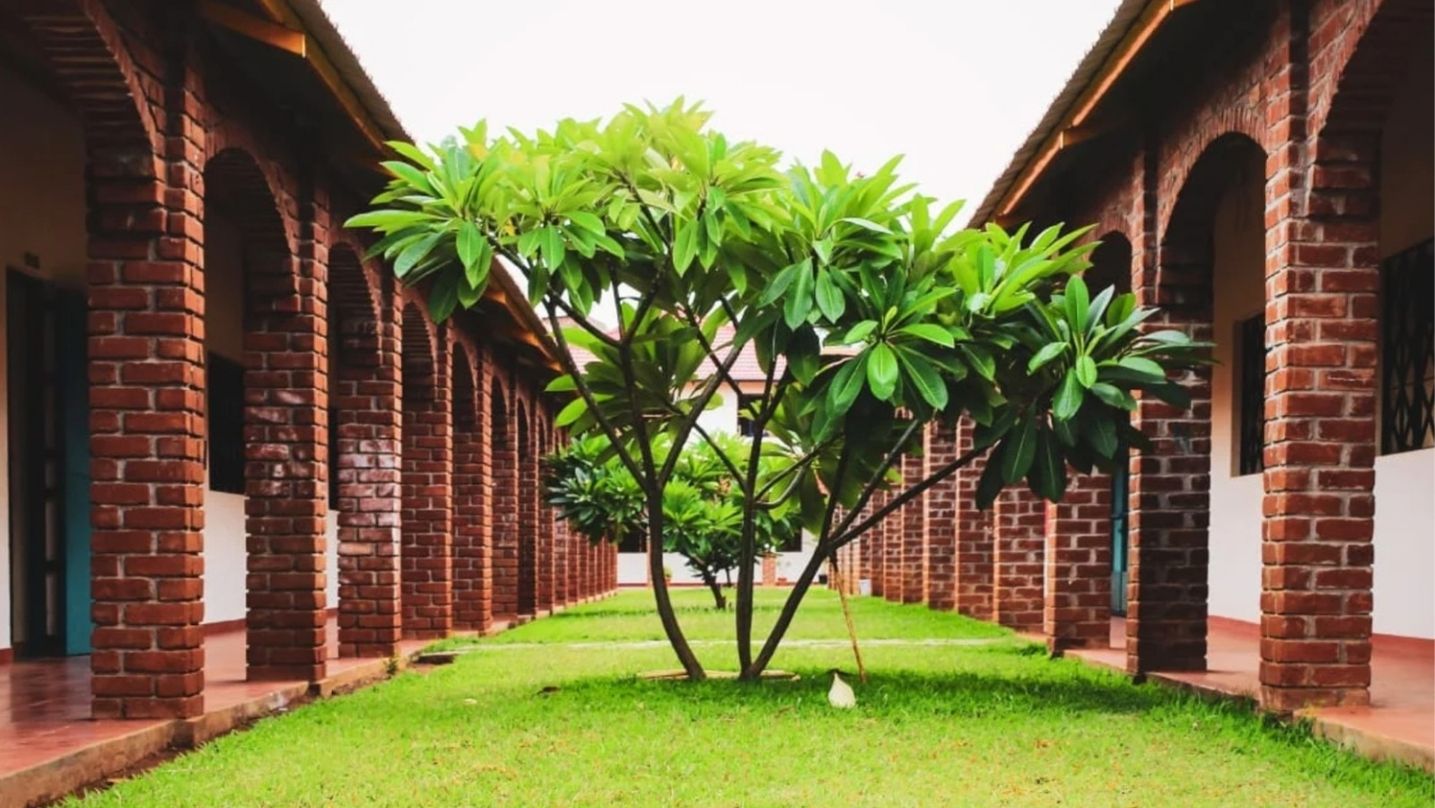
Naturally immersive campus of Prakriya
Ms. Rao, our guest, not only wears the hat of an education expert but also has multiple facets to her life, including being an ardent pet lover, animal enthusiast, and advocate of women empowerment. When asked about her passion for animals, Ms. Rao revealed her deep commitment to animal welfare, expressing her desire to establish an animal shelter within the next 10 years. This aspiration has been a lifelong dream, rooted in her love for animals since a very young age.
Throughout the COVID-19 pandemic, Ms. Rao found an opportunity to contribute to animal welfare, emphasizing that her actions are not for public display but stem from a genuine personal interest. Her car, she humorously shared, is always stocked with treats and supplies for animals she may encounter on the road. During the pandemic, Ms. Rao initiated projects supporting animal welfare, including contributing to surgeries for sterilization and medical treatment. These initiatives, she mentioned, have had a positive impact on numerous lives.
In addition to her passion for animals, Ms. Rao is deeply committed to women empowerment. She believes that women should be empowered and supported to lead successful, happy, and independent lives. Ms. Rao highlighted the disparities in education between genders, particularly in lower-income backgrounds, where girls often face barriers to continued education. To address this issue, Ms. Rao founded the PremAnand Foundation, names of her parents, meaning "love and happiness." The foundation undertakes various projects aimed at empowering women, starting with education and extending to support for their overall well-being.
To contribute to and safeguard the rich heritage, civilization, and culture embedded in our country, Ms. Rao has initiated a trust named Ekalavya, drawing inspiration from one of the greatest disciples of Dhronacharya. The trust started with contributions to Annadanam (donating food) and gradually extended its support to the reconstruction of temples. Ms. Rao finds profound satisfaction in contributing to the preservation and thriving of temples, viewing it as a collective effort where everyone can play a small role. Ekalavya serves as her means of actively participating in the safeguarding and continuation of the rich cultural and spiritual heritage she holds dear.
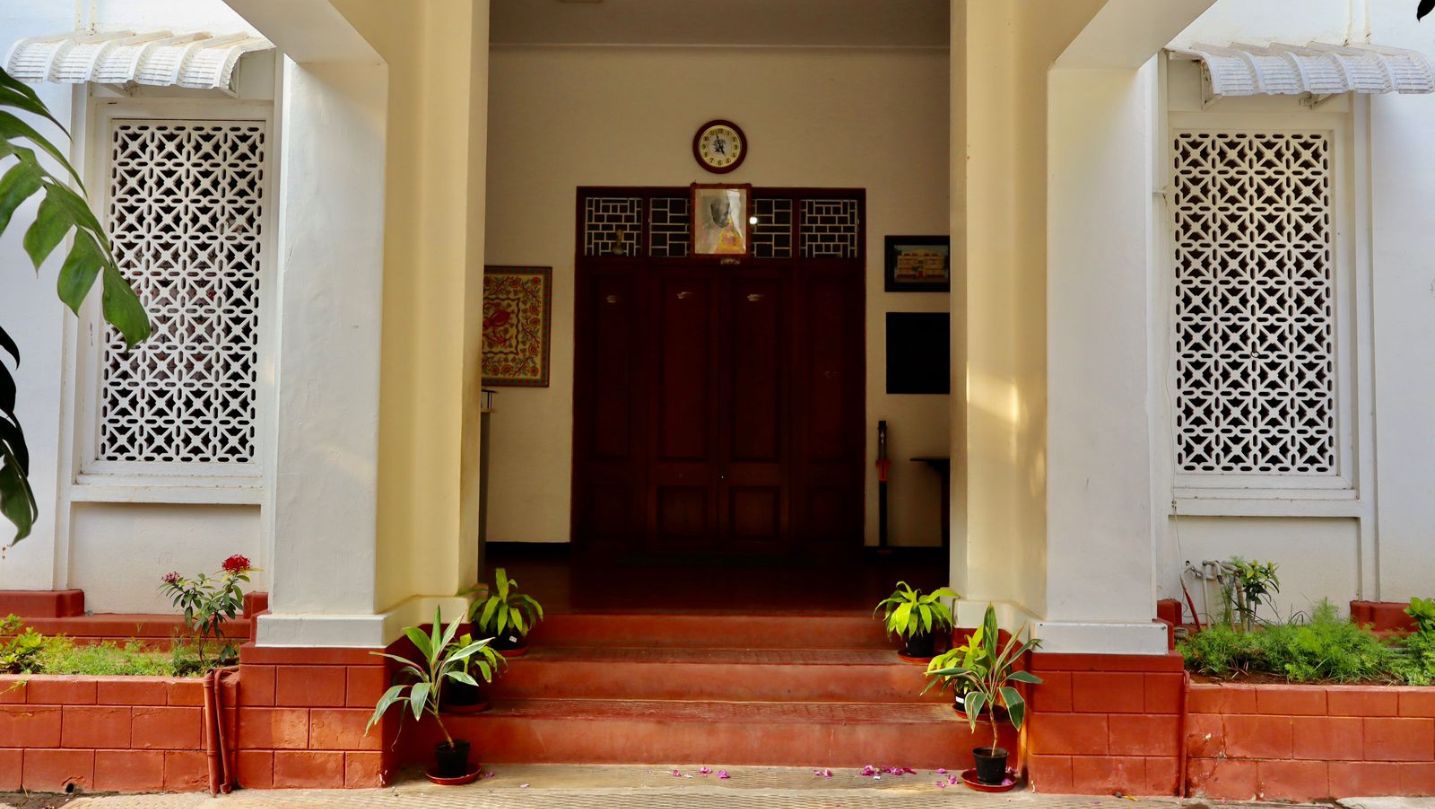
Aesthetic view of Vivekalaya Campus
Ms. Rao's message to the children is one of inspiration and guidance. She acknowledges that the world is on the brink of growth and change, filled with wondrous possibilities. Her advice to the younger generation is simple yet profound: aspire to work, but, most importantly, be true to your values and ethics. She believes that by contributing positively to the world, by contributing to the community around self, individuals can automatically find themselves on the path to achieving their dreams.
Ms. Rao has an encouraging message for those aspiring to pursue a future as educators. She recognizes the pressing need for more educators, teachers, schools, colleges, and training centers. In her view, anyone with intelligence and an idea that can benefit others is already an educator. She simplifies the concept, stating that while one may not have the infrastructure initially, having the idea, passion, and desire to share knowledge makes one an educator. Her message is clear: if you possess valuable insights or innovative approaches to education, share them. Inspire others with your passion and ideas, even if you are starting small. Ms. Rao emphasizes that this sharing and inspiring culture is what the world needs for a brighter educational future.

Ms. Aishwarya Rao receiving a prestigious Business world award for her contribution in the field of Education (Left)
Ms. Aishwarya Rao receiving a prestigious Economic Times Award for excellence from Shri Temjen Imna (Right)
Ms. Rao has been awarded with several prestigious national awards for her immense contribution in a short period in the field of education. Her innovative ideas and steadfast commitment instill confidence to us that our education system is well-guided and that India's future is bright. With dedicated individuals like Ms. Rao, today's students, who will build tomorrow, can continue to dream big. The strong foundation being built empowers them to reach their full potential and contribute to our nation's progress.
|| Dharmo Rakshati Rakshitah ||
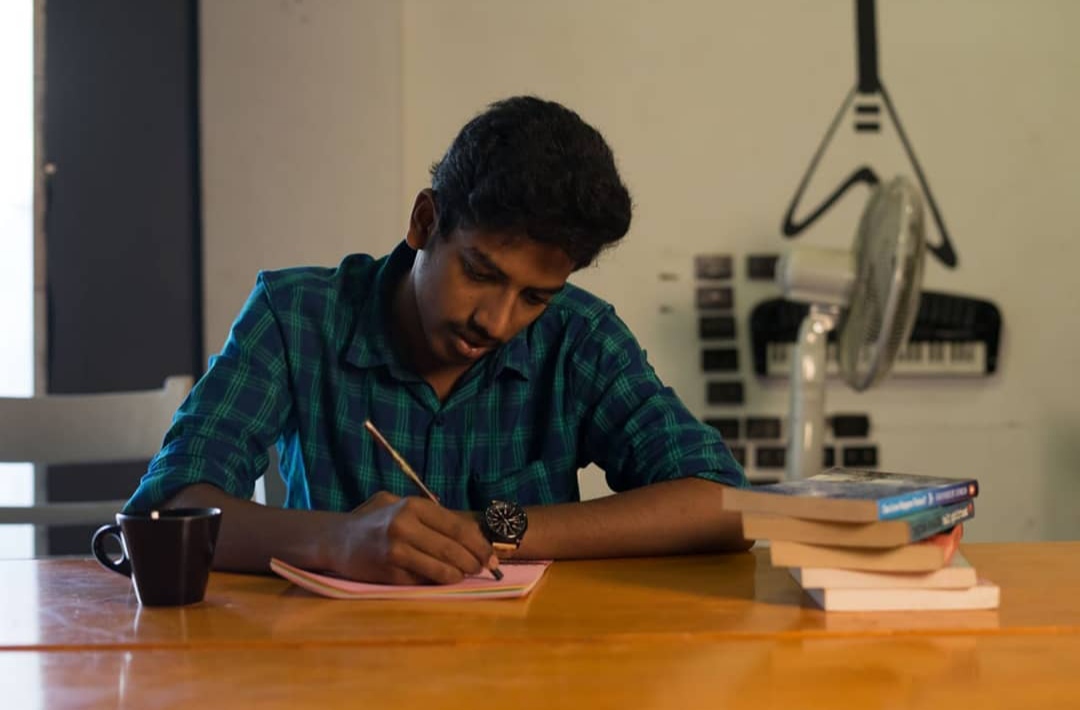
NEXT ARTICLE

"A staggering one in five children in India is pre-diabetic," revealed Mrs. Swathy Rohit, the visionary founder of Coimbatore-based digital health p...

Where a rhythmic cadence of music blends seamlessly with the structured world of auditing, we found Mukund Swaminathan, a 26-year-old maestro who has...
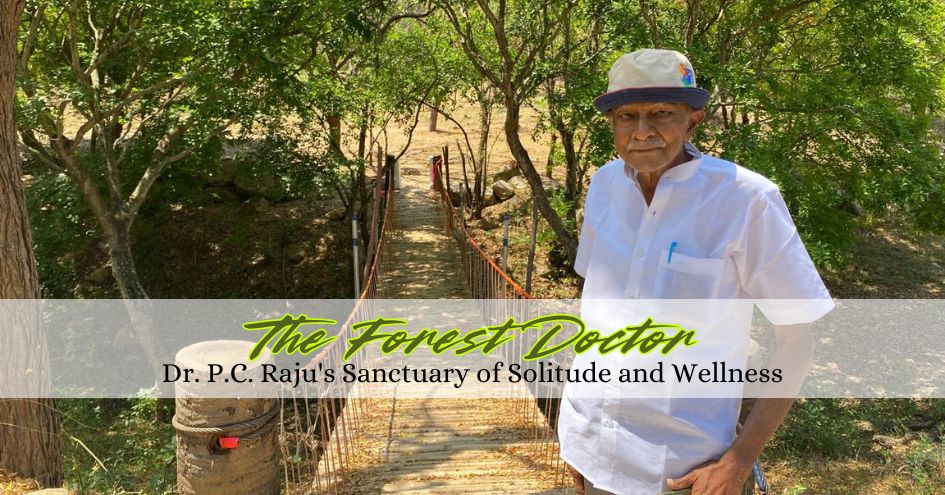
"Life doesn't offer retirement, only professions do. While I've stepped away from my practice, I haven't retired from living. No one truly retires whi...